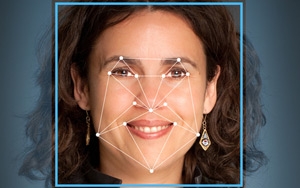 Shutterfly is asking a judge to send a high-profile fight over "faceprints" to arbitration.
Shutterfly is asking a judge to send a high-profile fight over "faceprints" to arbitration.
The legal battle centers on Illinois resident Brian Norberg's allegations that his
"faceprint" was added to Shutterfly's database after his picture was uploaded to the online photo service, and tagged with his name, by someone else. Shutterfly now says in new court papers filed on
Thursday that the person who uploaded Norberg's photo was his wife, Megan Blatt.
Blatt, who was engaged to Norberg last June, allegedly has an account with Shutterfly, and agreed to its terms
of service, which require arbitration of all disputes.
"The facts give rise to a strong inference that Mr. Norberg and his now-wife acted in concert to generate the claims in this lawsuit,"
Shutterfly says in papers filed on Thursday with U.S. District Court Judge Robert Norgle in Illinois.
advertisement
advertisement
Norberg, who doesn't have an account with Shutterfly, alleged last June in a potential
class-action that Shutterfly is violating the Illinois Biometric Information Privacy Act, which prohibits companies from storing people's "biometric identifiers" without their consent.
The
company counters in its latest papers that the lawsuit was filed only 10 days after Blatt uploaded the photos. Shutterfly argues that the timing makes it "highly unlikely" that Norberg discovered the
photos, hired a lawyer and then drafted a complaint in only 10 days' time.
The company adds that the "most logical explanation" is that the claims "were already in the works before Ms. Blatt
joined ... and loaded the photos of her then-fiancé (now husband)."
Norberg's attorney, David Milian, calls Shutterfly's motion "completely meritless."
"Shutterfly has resorted
to baseless innuendo in an effort to avoid the merits of this lawsuit," he says in an email to MediaPost.
Venkat Balasubramani, an Internet law expert who has written about this lawsuit, says that people's associates generally aren't bound by
arbitration agreements they didn't personally sign.
"The default rule is that if you agree to an arbitration clause, that doesn't necessarily mean your associate or friend is also bound by the
clause," he says.
He adds that lawyers often are involved in the planning stages of class-actions. "Just because lawyers are involved, that doesn't mean all bets are off," he says.
Earlier in the case, Shutterfly unsuccessfully argued that the Illinois privacy law didn't apply to faceprints derived from photos. The statute excludes photos from the definition of "biometric
identifiers," but also includes scans of "face geometry" in the definition.
Google and Facebook are facing similar lawsuits in in federal court in the Northern District of
California.